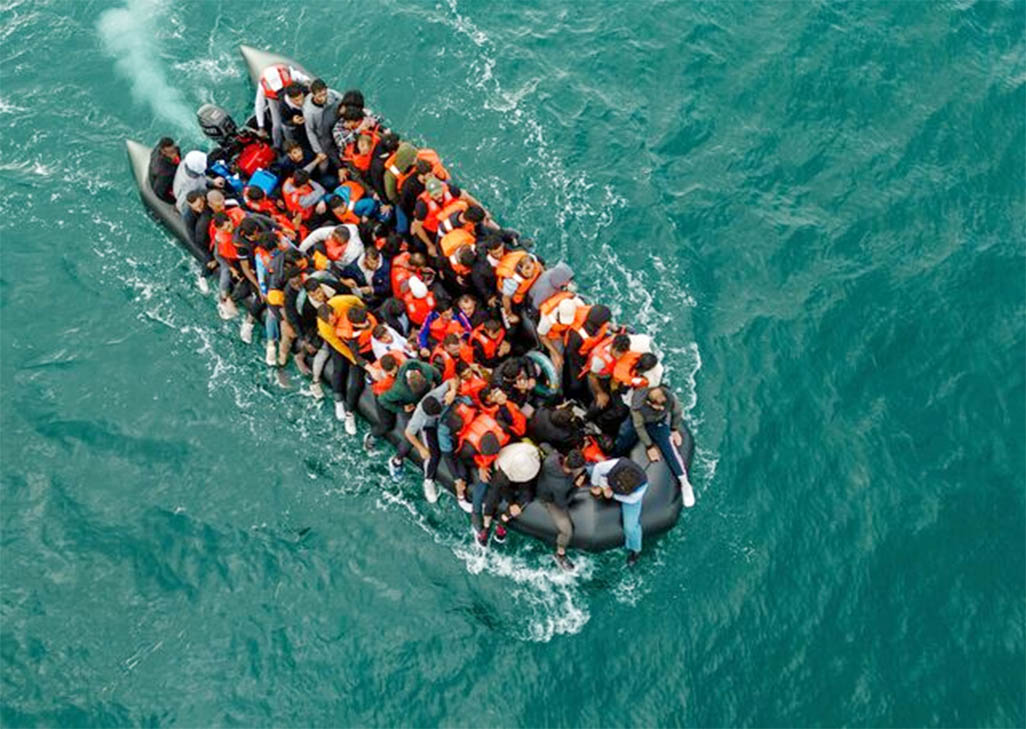The joint statement on migration made by the leaders of 17 countries, the European Commission, and the European parliament is “a reaffirmation of the goals promoted by the European Union”, Migration Deputy Minister Nicholas Ioannides said on Saturday.
Speaking to the Cyprus News Agency, he said the statement addressed “issues which are already being promoted and will continue to be promoted by the member states and by the European Commission”.
“They are priorities … We are already working on several of them,” he said, before going on to stress that Cyprus has achieved a “record” in migrant returns.
“These are things which are also a priority for us and upon which we are placing emphasis,” he said.
The joint statement was released during the European Political Community summit, with 15 of the 17 countries which signed it – Austria, Belgium, Bulgaria, Cyprus, the Czech Republic, Denmark, Germany, Greece, Italy, Malta, the Netherlands, Poland, Portugal, Romania, and Sweden – being EU member states.
Its two signatories which are not EU member states are Andorra and the United Kingdom.
It said the signatories had “underlined the need for a ‘whole-of-route approach’, and for innovative solutions to keep pace with the very-evolving challenges of illegal migration”, while also stressing their commitment to “supporting one another in their efforts”.
Among the “key themes” set out in the statement were that the signatories will “take the strongest action against smugglers and secure our borders”, ensuring that “law enforcement have the powers, data, and capabilities to work across borders to target this threat and its enablers effectively”
It also said the signatories will “work together on new ways to target smuggling gangs, such as the use of sanctions regimes”.
Another “key theme” was that the signatories’ wish to “ensure our legislative frameworks and asylum systems are robust”.
This, they said, will “protect against exploitation, deter those trying to undermine our systems, and ensure international frameworks, including the European Convention on Human Rights and the Refugee Convention, are implemented in a way that safeguards against abuse and so that governments can tackle modern challenges”.
They also said they will “take an unequivocal approach to returns” of migrants, “developing common principles using all the tools available – including diplomatic and visa leverage – to enact efficient and effective returns”.
Additionally, they said, they will “forge new and innovative partnerships, including with third countries, to accelerate processing and alleviate domestic pressures”.
Cyprus’ record of migrant returns saw more than 10,000 irregular migrants who had been staying in Cyprus returned to their country of origin last year, with Cyprus’ prolificness in repatriating irregular migrants to their countries of origin having earlier caught the eye of the European Union.
European Commission President Ursula von der Leyen said the country has “made good progress” on the matter during a visit to Paphos last year.
Her words echoing those of former European Commission vice president for promoting the European way of life Margaritis Schinas, who had described Cyprus as an “emerging European champion of migrant returns”.
However, one of the Copenhagen joint statement’s other joint signatories, the UK, earlier in the year irked the Cypriot government by signing a deal with France wherein the UK returns irregular migrants who had crossed the English Channel back to France.
The Cypriot government, alongside the governments of Greece, Italy, Malta, and Spain, had sent a joint letter to the European Commission in advance of the deal expressing concerns that the deal may lead to irregular migrants being sent back to the EU member state at which they first arrived after being returned to France.
Despite the Mediterranean states’ fears, British Prime Minister Sir Keir Starmer stressed that the deal is a positive and that it will enhance the UK’s relations with Europe as a whole.
“This ground-breaking deal is a crucial further step in turning the tide on illegal small boat crossings and restoring order to our immigration system,” he said.
French President Emmanuel Macron was, according to French newspaper Le Monde, less glowing of the deal, only going as far as to describe it as “pragmatic”, but stressed that France and the UK have “no choice but to work together”.






Click here to change your cookie preferences